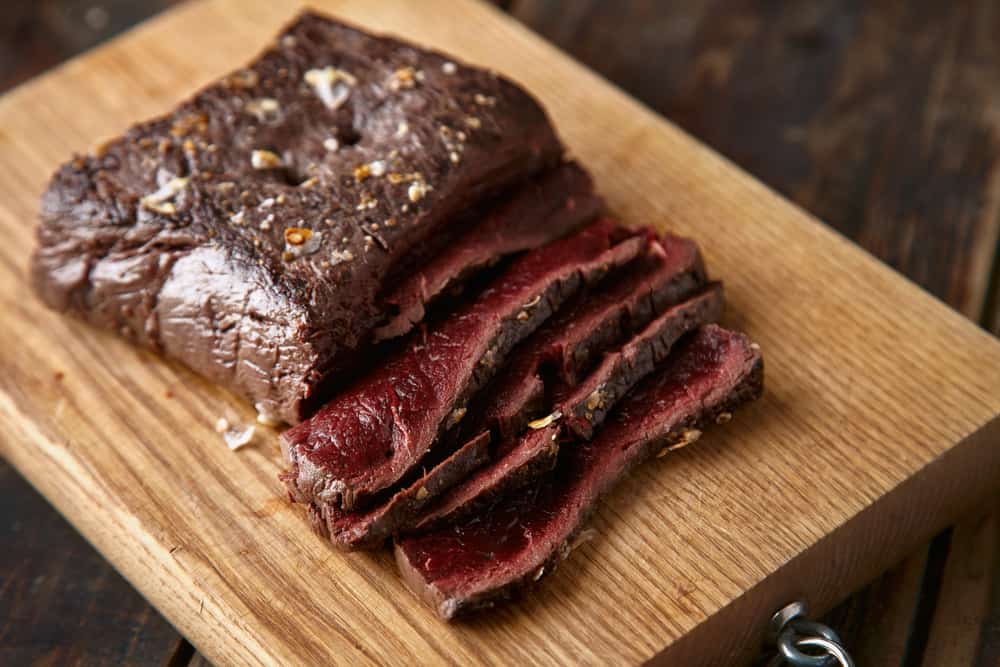Whale meat is described as having a richness and firmness similar to beef, but with a slightly fishy taste. The flavor can vary depending on the type of whale and how it is prepared. However, it’s important to note that commercial whaling is largely banned nowadays due to conservation efforts, and the consumption of whale meat is controversial and restricted in many countries.
Know More About what does whale taste like
Whale meat, a delicacy in some parts of the world, has a unique and polarizing reputation. For centuries, cultures like Japan, Iceland, and Norway have been feasting on this majestic creature, savoring its rich taste and high nutritional value. But what does whale taste like, and how does it compare to other commonly consumed meats?
One must first acknowledge the ethical and environmental concerns surrounding whaling. While commercial whaling has declined significantly in recent years due to conservation efforts, it remains a contentious issue. It is important to approach the topic from a culinary perspective while keeping these broader considerations in mind.
Whale meat, often referred to as “whale steak,” has a distinct flavor that can be challenging to define. It is commonly described as being similar to beef, but with a darker, slightly gamier, fish-like taste. The flavor can vary depending on the species of whale and the specific cut of meat. Some compare it to venison or a cross between beef and trout, with a hint of ocean brine.
Texture-wise, whale meat is rich and tender, often resembling a well-marbled piece of beef. The meat’s fat content contributes to its tenderness, while the pronounced muscle fibers give it a unique chewiness. Many consider the texture akin to a juicy and succulent steak.
The taste and texture of whale meat can vary further depending on the preparation method employed. Grilling, searing, and sautéing are popular cooking techniques that enhance the flavors and bring out the meat’s distinctive characteristics. Additionally, marinating the whale meat beforehand can add new dimensions to its taste, allowing for a more nuanced experience on the palate.
It is crucial to note that consuming whale meat should be approached with cultural sensitivity. While it may be considered a traditional food source in some regions, it is essential to respect the conservation efforts and regulations surrounding whaling. Furthermore, the sale and consumption of whale meat are banned in many countries due to concerns over the sustainability of these magnificent marine creatures.
From a nutritional standpoint, whale meat is relatively lean and packed with protein, vitamins, and minerals. It is said to contain high amounts of omega-3 fatty acids, which are beneficial for heart health and brain function. Comparatively, whale meat can contain less fat than beef or pork, making it a potentially healthier red meat option for discerning carnivores.
When contemplating the taste of whale meat, one must also consider the cultural and historical context in which it is consumed. Japan, for example, has a long-standing tradition of whale hunting and culinary appreciation for whale meat, particularly in dishes like sashimi and kujira tatsuta-age (a sort of deep-fried whale cutlet). These preparations showcase the uniqueness of the meat and the skill with which it is handled.
In conclusion, whale meat offers a distinct gustatory experience that combines elements of beef, venison, and even a subtle hint of the sea. Its tenderness, rich flavor, and high nutritional value make it an intriguing option for those seeking different culinary adventures. However, it is crucial to approach this subject with cultural sensitivity and an understanding of the broader conservation issues at stake. Ultimately, while whale meat may be a delicacy in certain regions, it is essential to balance personal curiosity with respect for animal welfare and environmental sustainability.
FAQs on what does whale taste like
1. What does whale taste like?
Whale meat is often described as having a rich and fatty flavor, similar to that of intensely marbled beef.
2. Is whale meat commonly consumed?
Whale meat is traditionally consumed in certain cultures, such as Japan, Norway, and Iceland. However, its consumption has significantly decreased due to environmental concerns and international whaling regulations.
3. Are there different types of whale meat?
Yes, different whale species have varying meat characteristics. For example, fin whale meat is known for its dark red color and lightly gamey taste, while minke whale meat is comparatively milder and resembles beef or venison.
4. Is whale meat considered a delicacy?
In some regions, whale meat is regarded as a delicacy due to its scarcity, cultural significance, and historical consumption. However, it is crucial to note that whale conservation efforts have restricted its availability and supply.
5. How is whale meat typically prepared?
Whale meat can be cooked in various ways, including grilling, frying, or stewing. It is often thinly sliced and used in traditional dishes like sashimi, jerky, or as an ingredient in elaborate stews.
6. Can whale meat be compared to any other commonly eaten meats?
Whale meat is often compared to other red meats, especially beef and venison, in terms of taste and texture. However, it is essential to understand that the unique taste of whale meat distinguishes it from other meats.
7. Is there any controversy surrounding whale consumption?
Absolutely, whale consumption is highly controversial due to concerns about the conservation of whale populations and ethical considerations. It has prompted international debates about the sustainability and morality of whaling practices.
8. Can whale meat be purchased outside whaling countries?
Whale meat is generally not easily accessible outside of countries that still engage in whaling activities due to international regulations and restrictions. However, certain specialty stores or markets in these countries may offer limited quantities of whale meat.
9. Are there any health risks associated with consuming whale meat?
Whale meat is known to contain high levels of mercury, which can be harmful to our health if consumed in large quantities. Thus, it is essential to exercise caution and consume whale meat in moderate amounts.
10. Is whale meat sustainable to consume?
The sustainability of consuming whale meat is highly debated. Conservationists argue that stricter regulations and a complete ban on commercial whale hunting are necessary to protect whale populations and maintain healthy marine ecosystems.




Leave a Reply